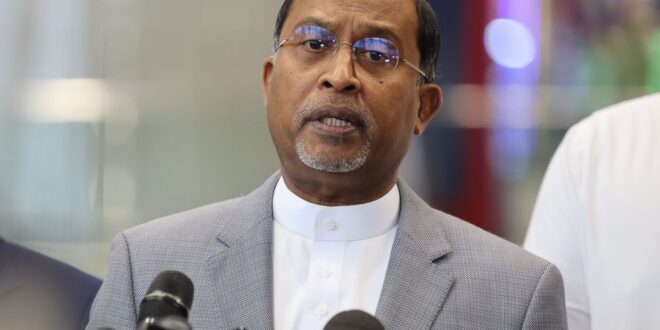KUALA LUMPUR: The proposed amendments to the Universities and University Colleges Act 1971 (UUCA) were tabled in Parliament for a second reading to empower students to manage their associations’ activities and finances.
Higher Education Minister Datuk Seri Dr Zambry Abdul Kadir said the UUCA, which was enacted in 1971 and has since gone through seven amendments, is one of the most comprehensive laws in Malaysia’s history.
“The UUCA has undergone seven amendments, with the latest in 2019.
“The amendments covered various scopes from governance improvements to student activities and discipline.
“Although there are still diverse views and opinions, including suggestions to abolish it and replace it with a new Act, not many fully understand the true aspirations behind the continuous improvements through UUCA amendments, especially regarding student affairs,” he said when tabling the proposed amendments for the UUCA for the second reading on Monday (March 18).
Four of the seven amendments made were related to student affairs and current needs, said Zamdry.
“For example, the latest amendment in 2019 was a positive development in granting students more freedom to participate in political activities on and off-campus.
“The ministry believes that this freedom has encouraged students to demand more space and opportunities, especially in managing their activities and finances.
“Based on the Madani concept, the ministry believes that students are now ready to shoulder greater responsibilities by granting them more freedom to carry out association activities and manage student activity finances,” he said.
Zambry said the proposed amendments in the Bill addressed several sections of the UUCA.
He said Section 15A seeks to allow Student Representative Councils and student bodies to collect funds and receive contributions in any manner, subject to prevailing written regulations and laws.
Next, Section 16B seeks to transfer the disciplinary authority from the Vice-Chancellor to the Student Disciplinary Committee to reflect the current practice in public universities.
Also, Section 48(4) seeks to extend the term of office for student council members from one year to “one academic year,” in consideration of extraordinary situations like the Covid-19 pandemic.
Section 48(11) seeks to allow the university to establish any fund or own any assets to be managed and maintained by the Student Representative Council according to the university’s financial procedures, enabling the Student Representative Council to open and manage accounts with any authorised financial institution.
Finally, Section 49(2) seeks to allow the University Student Body (Badan Pelajar Universiti) to receive the same facilities as the Student Representative Council.
However, Zambry noted that the implementation will be phased, starting with the Student Representative Council in the first year.
“If there are no issues and everything runs smoothly, the University Student Body will also enjoy the same facilities in the following years.”
He added that the Bill would make the student empowerment agenda successful, marking a historic moment as UUCA is once again amended to elevate the dignity of university students.
 BeritaKini.biz Berita Viral Terkini di Malaysia
BeritaKini.biz Berita Viral Terkini di Malaysia





